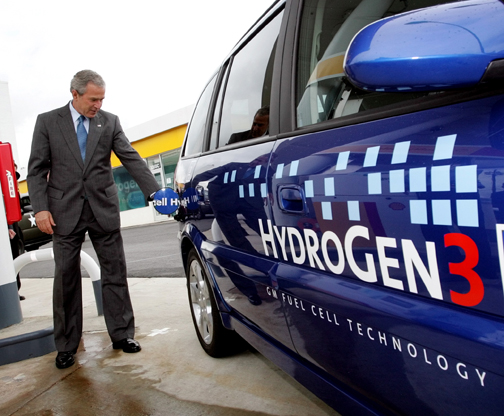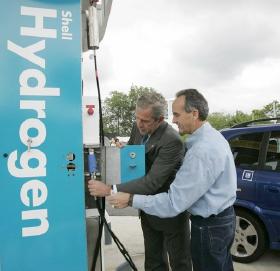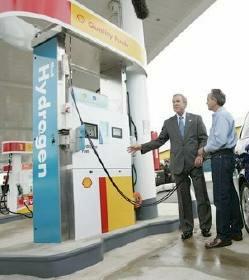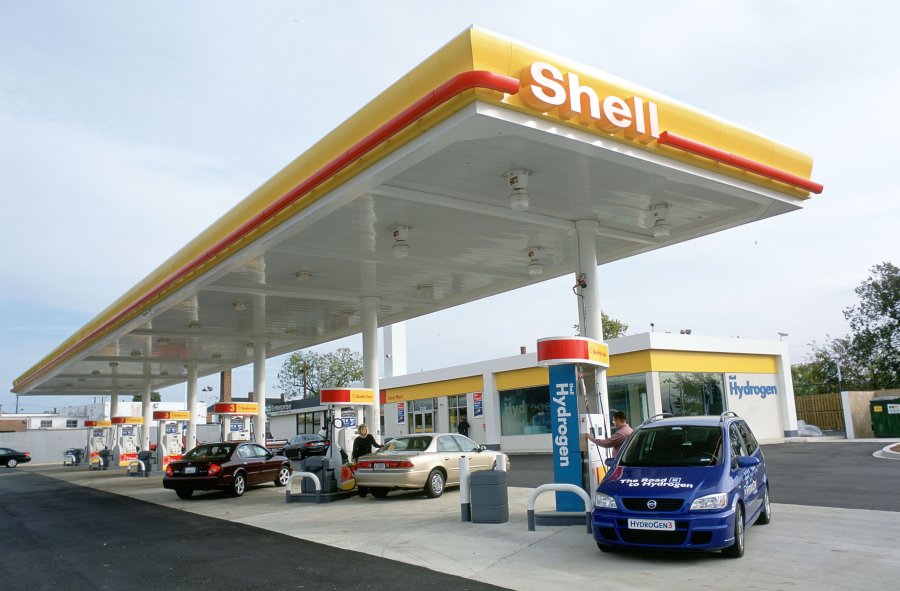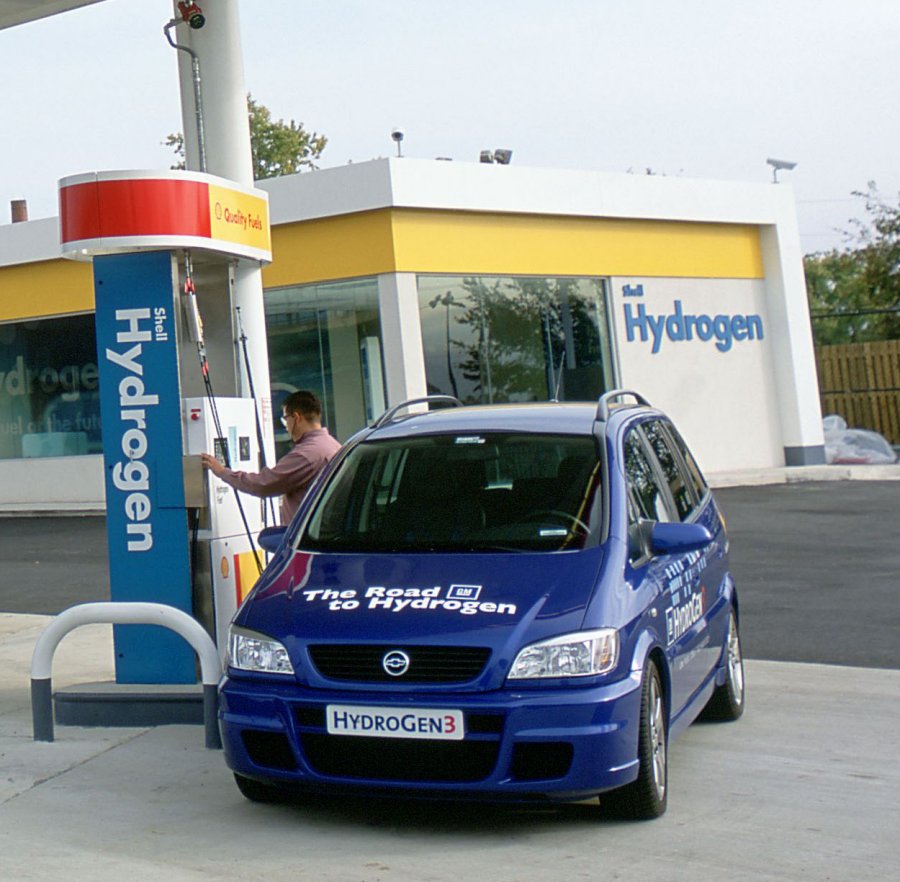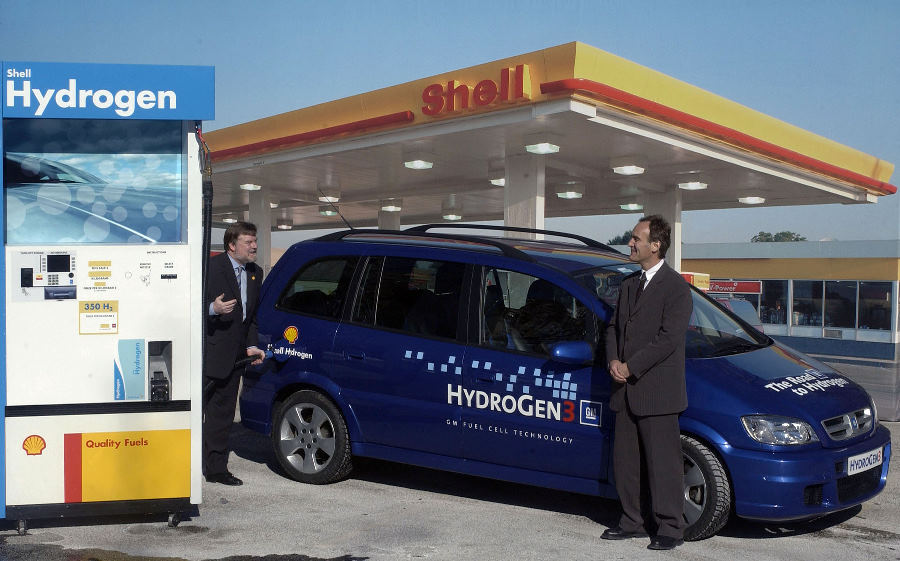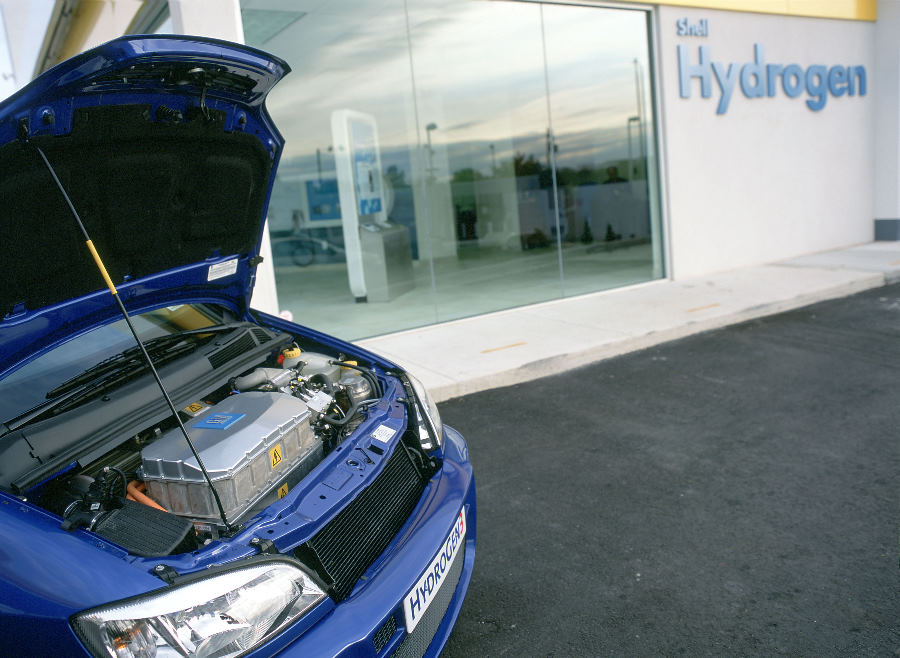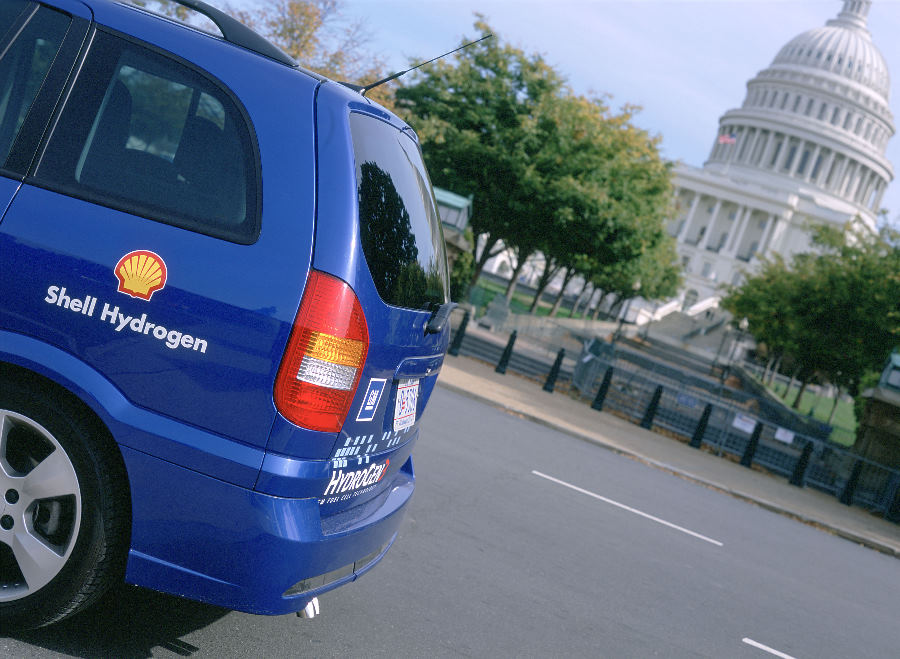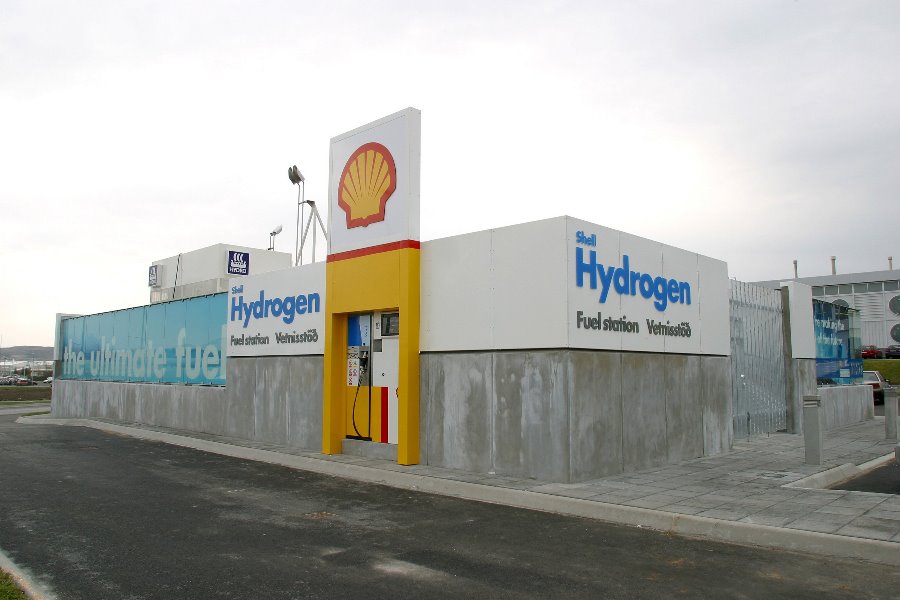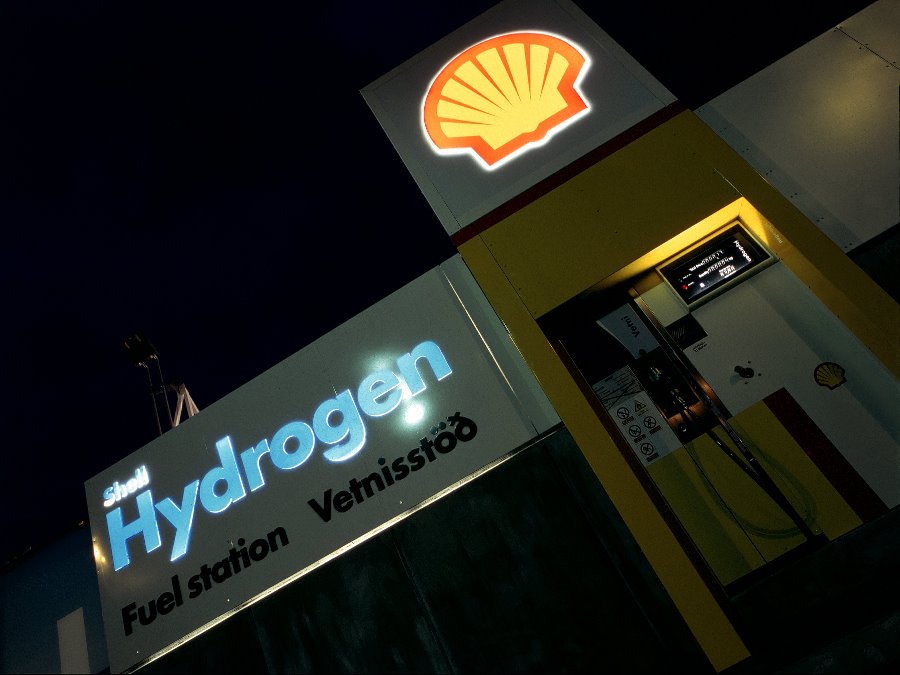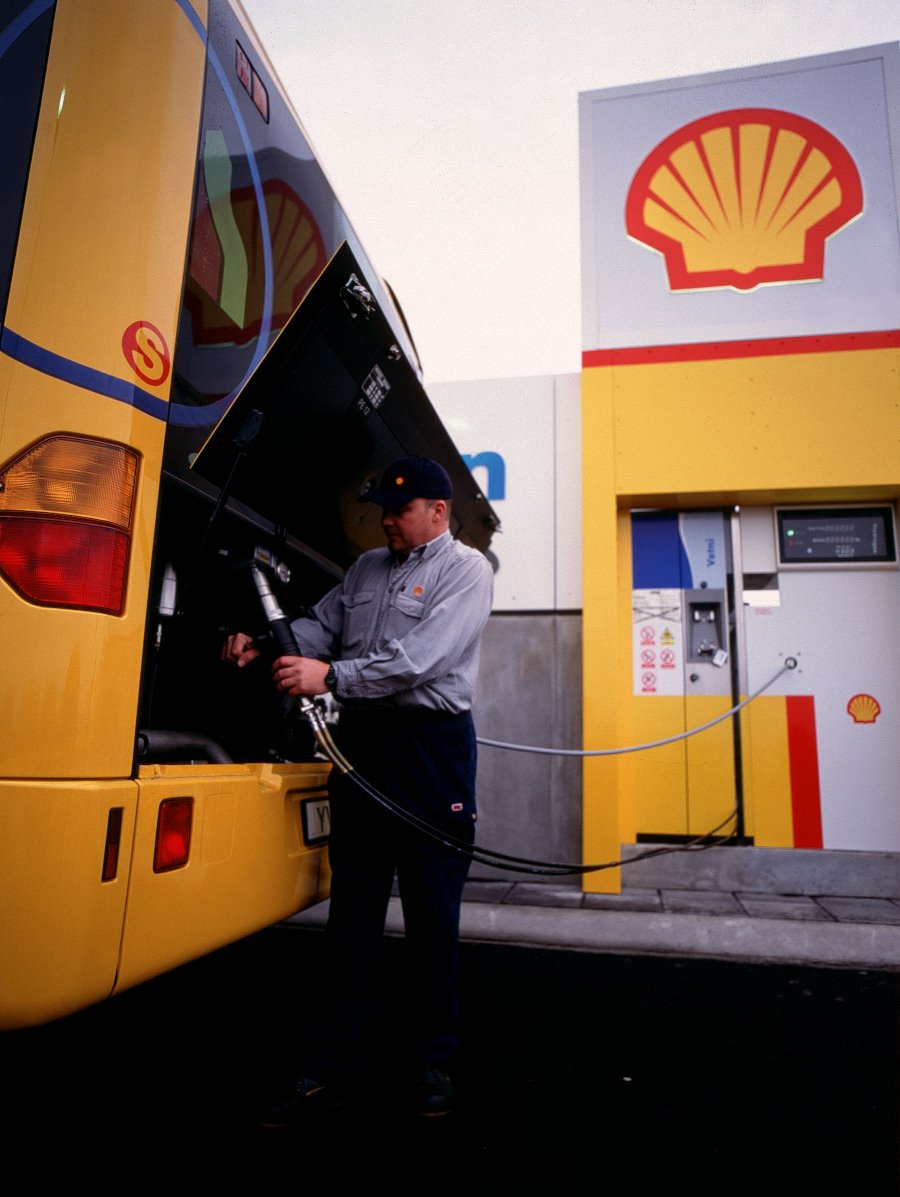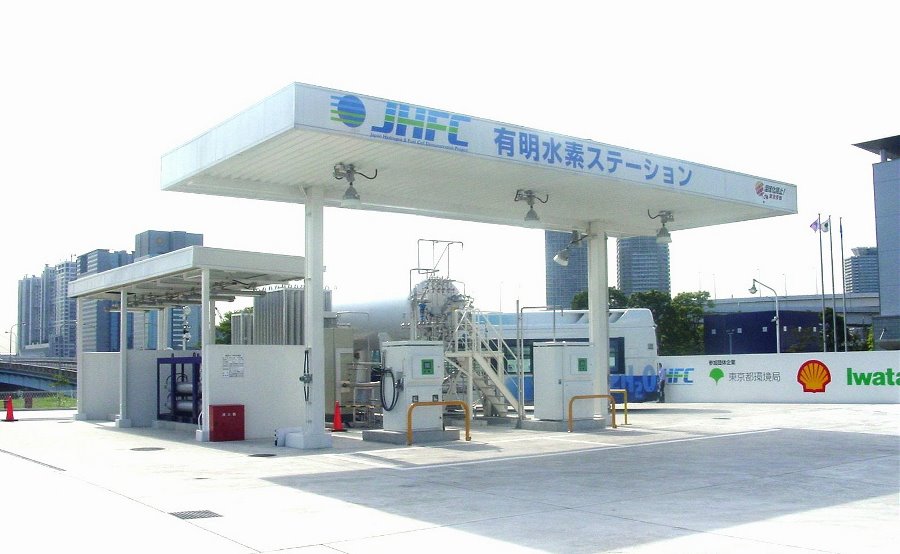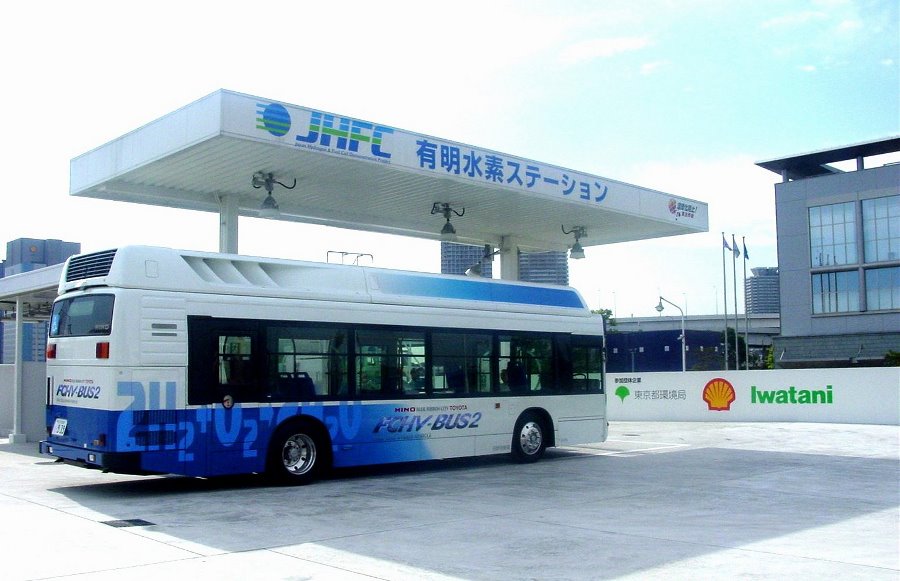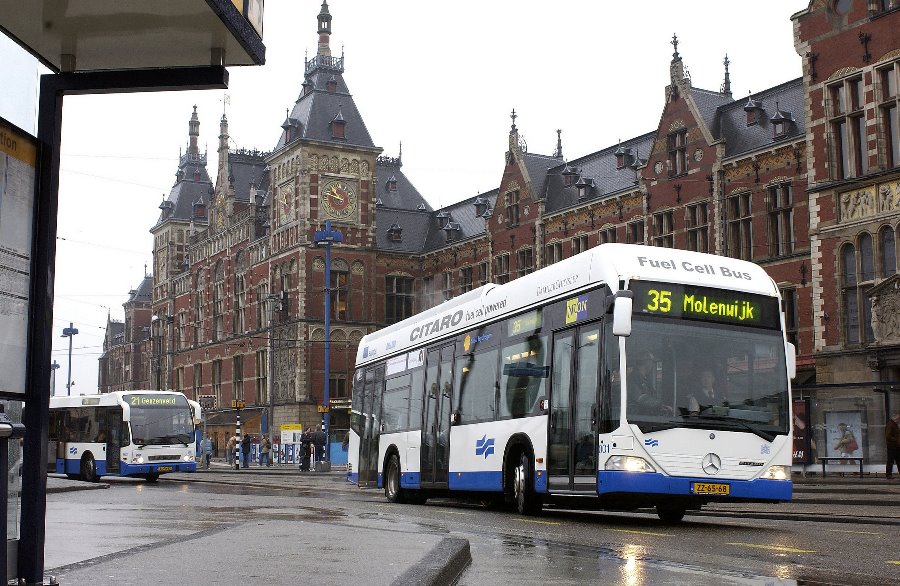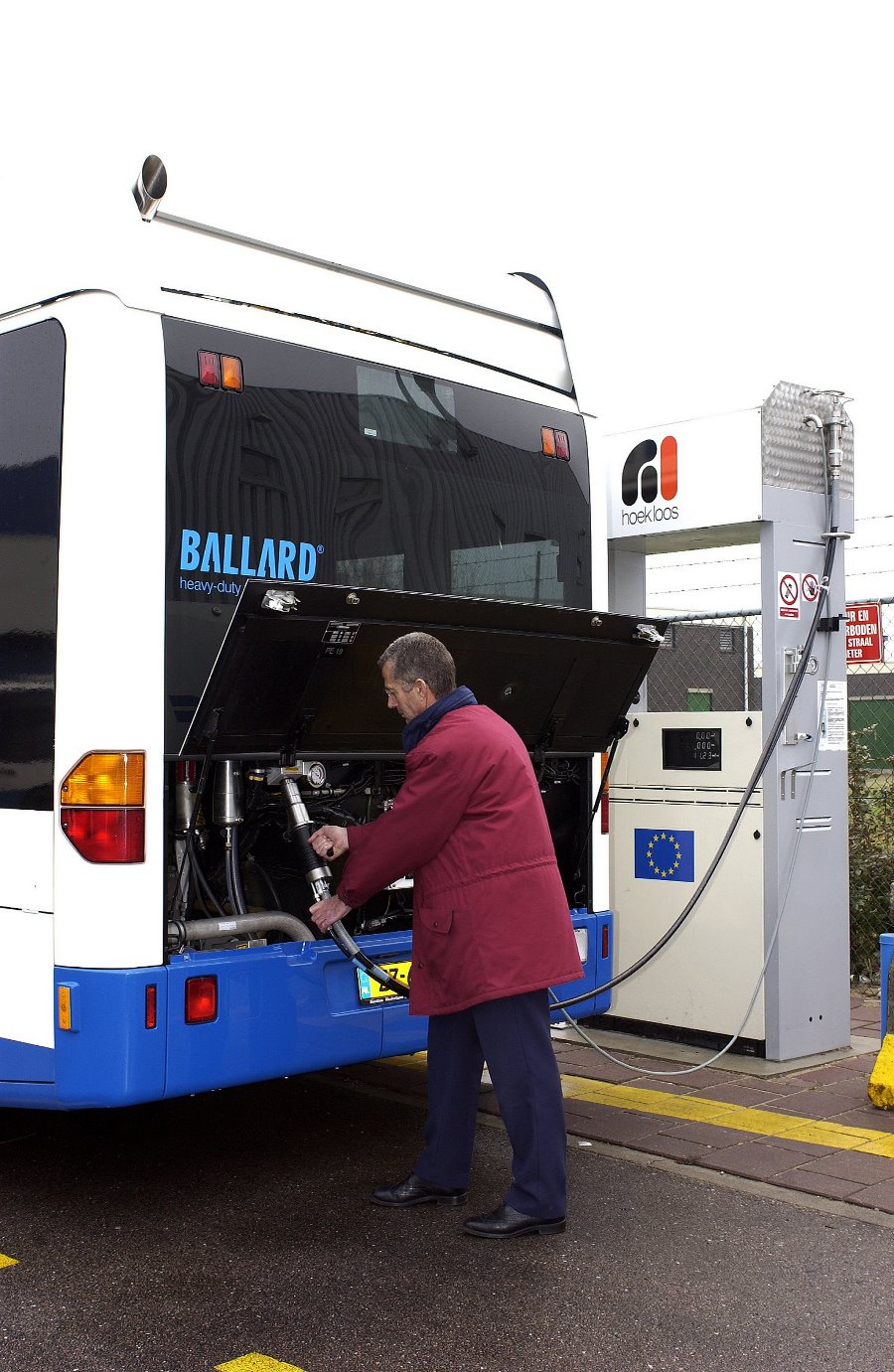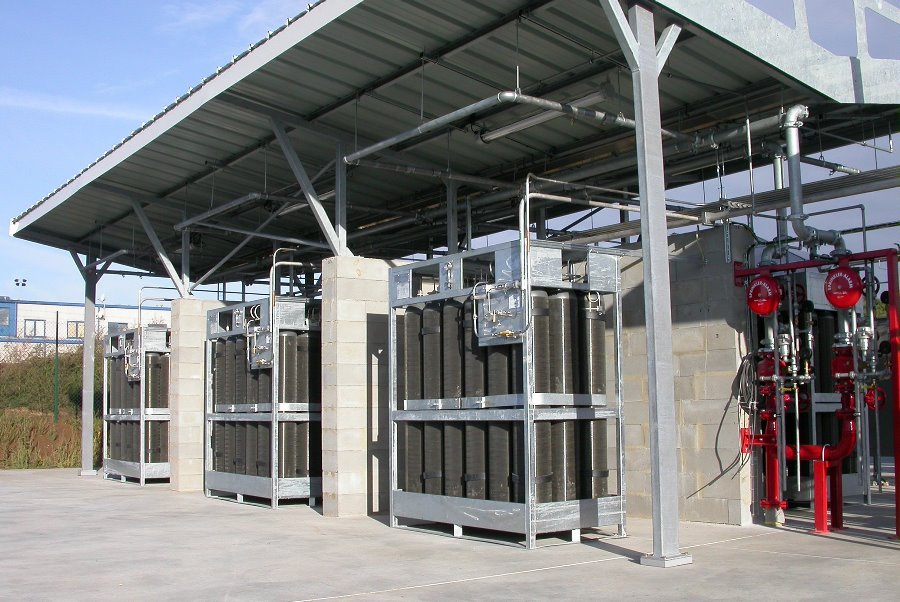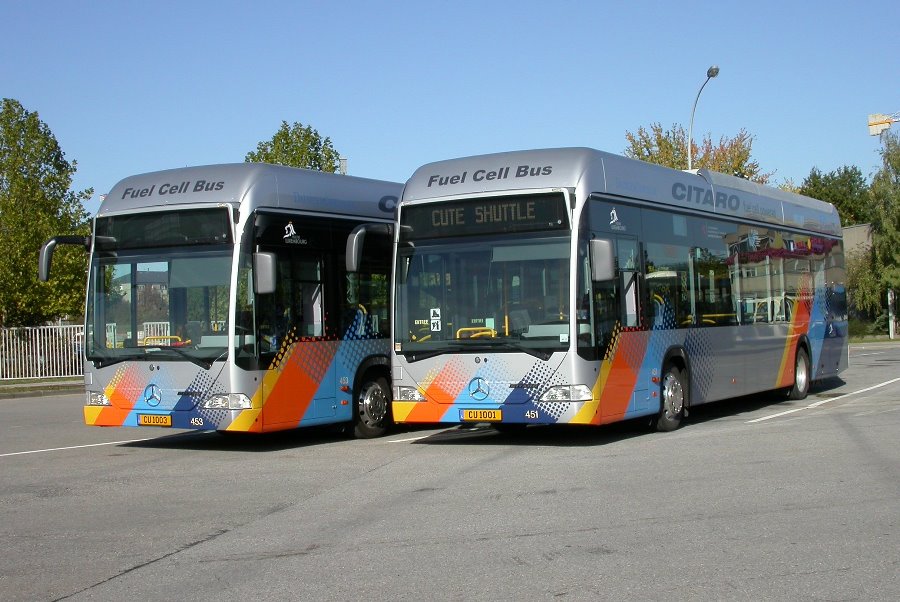|
|
|||||
About Shell Hydrogen
Along this journey, Shell Hydrogen wishes to play a leading role and champion the realisation of a hydrogen-based economy. By actively collaborating with other market parties in creating an infrastructure for hydrogen that will enable this source of energy to become globally accessible for the everyday consumer. With this in mind, Shell has developed a clear strategy; a strategy that takes account of technical, economic and political developments, but at the same time is based on the company’s own ideas and its acquired expertise. Who we are Shell Hydrogen is a global business of the Shell Group with headquarters in The Hague, the Netherlands, and regional bases in Houston and Tokyo. Shell Hydrogen was set up in 1999 to pursue and develop business opportunities related to hydrogen and fuel cells. Our goal Our goal is to bring hydrogen into a retail setting. Shell already has a hydrogen platform of production nodes all over the world. Over 50 million tonnes are produced and consumed every year. Through existing and planned demonstration projects Shell Hydrogen is currently building up our experience in connecting these production nodes with our retail infrastructure. Bringing hydrogen out of its industrial settings into the everyday lives of people, to places where consumers can access it as a fuel for their vehicles. Our strategy We foresee the global hydrogen economy as a new structure in which hydrogen represents an important component of the portfolio of energy sources and fuels, and as a realistic alternative to the world's present wide-scale use of hydrocarbon fuels. The broad-based application of hydrogen offers a solution to current problems such as the dependency on finite fuels and uncertainty concerning energy supplies and air pollution Hydrogen could be a clean and abundant source of energy, to meet the world’s increasing demand. To actually be able to market hydrogen within the foreseeable future, Shell is operating along two channels. Firstly, Shell wishes to broaden its expertise, make the public more aware of the application and use of hydrogen by initiating and encouraging hydrogen-based projects. Secondly, Shell is actively supporting technological development essential for rendering hydrogen accessible to a broader market. What we do We work with partners to promote and support the development of the infrastructure and technical solutions that the world needs to make hydrogen a practical, safe and efficient fuel. We are actively involved in demonstration projects around the world. We are the only major energy company involved in fuel cell vehicle demonstrations in all three major hydrogen markets – Japan, North America and Europe. We are building new fuelling stations for hydrogen, or are adapting existing locations for that purpose. We are partners in two investment funds, supplying venture capital to early and latter stage companies in the hydrogen sector, to help develop the hydrogen economy. Part of the Shell Group Shell Hydrogen’s strength lies in being a key business of the Shell Group - an organisation that shares the hydrogen vision at its most senior levels. At the same time we are able to draw from the Group’s international experience in introducing new fuels. For more information, please visit projects. Duncan Macleod
SOURCE: http://www.shell.com/home/content/hydrogen-en/about_shell/who_we_are_1208.html |
|||||
|
Benning Road Station Washington DC
(Photo by Paul Morse courtesy White House) First hydrogen pump operates in public/private fuel program Shell Oil's projects to reduce carbon emissions include a hydrogen refueling station in Washington, D.C. President Bush visited the station on May 25, 2005, posing with a fuel cell vehicle prototpye that runs on hydrogen. Houston
Business Journal
Last week, Shell Hydrogen opened the first-ever hydrogen pump at a retail service station in Washington, D.C. The event marked a milestone in an ongoing collaboration between Shell Oil Co., General Motors and the U.S. Department of Energy. The public/private coalition was created to demonstrate the viability of hydrogen fuel cell vehicles and the refueling infrastructure that will be necessary to support them. The retail station will service a fleet of GM minivans operating in the nation's capital, giving legislators and policymakers opportunities to ride in and drive the alternative-fuel vehicles. The Shell engineers and staff responsible for making this project happen are based at Shell Oil in Houston. Director of the project is Phillip Baxley, vice president of business development for Shell Hydrogen. The station in Washington is part of a plan between Shell and GM to develop hydrogen-fueled vehicles on a commercial scale. At this point, such vehicles are still prototypes being driven by GM engineers and also being tested by the U.S. Postal Service and the State of Maryland. Additional fueling facilities are "not too far off," says George Smalley, the communications director at Shell Oil currently on assignment to Shell Hydrogen. "We want to leverage our existing Shell retail stations," Smalley explains. Under this strategy, development of a network of hydrogen fueling facilities is expected to involve existing Shell retail stations such as the one in Washington, which had six gasoline pumps before one was converted to liquid hydrogen. An additional pump was installed at the station to dispense compressed hydrogen. Vehicles are propelled by fuel cells that turn hydrogen into electricity in an electrochemical reaction. Since no fuel is burned in the engine, the only emission is water vapor. Shell and GM plan to develop clusters of hydrogen fueling facilities in urban locales on the East and West coasts such as the metropolitan New York area and sites in northern and southern California, Smalley says. "Our strategy is not to install hydrogen randomly among the thousands of Shell stations across the country, but to start in highly populated urban areas and then start putting stations between those cities to create hydrogen corridors," Smalley explains. He expects other energy and auto companies will also participate in developing and expanding the network. "The cars and the fuel have to work in partnership,"
he says, noting that GM, Toyota and Ford also have fleets of hydrogen prototypes.
At least three -- and likely more -- Houston-based oil services companies have been impacted by the troubles of Russia's largest oil producer, Yukos. The government of President Valdimir Putin has seized a large chunk of the company's assets and is selling off a major production division to satisfy what the government claims are unpaid back taxes and tax fraud. The company's CEO was arrested and jailed last year. Input/Output Inc., a seismic services company based in Stafford, was forced to take a $5.2 million charge on third-quarter earnings, including a a loss of 7 cents per share due to nonpayment by Yukos. Input/Output had to provide a reserve for the exposure to receivables due the company from Yukos. The obligations were collateralized by equipment, with the majority already recovered, according to company officials. But the difference between the receivables and the estimated fair market value of the recovered equipment was $5.2 million. Also in late October, Houston-based Core Laboratories had been preparing to analyze the composition of hydrocarbons at several Yukos projects. But these plans are now up in the air due to "gridlock" at Yukos, Core's chief financial officer, Richard Bergmark, told Dow Jones. Schlumberger has reported that the slowdown in production by Yukos was a leading factor in the decline of the company's profit margins compared to the previous quarter. "We made a decision to remove equipment from Yukos because we were worried they would not be able to sustain activity, and we were anxious to move the equipment to other customers before the Russian winter set in," Schlumberger CEO Andrew Gould explained on a conference call with analysts. Baker Hughes, which has provided pumping services to Yukos, hasn't reported any negative effects yet, but expects there will be some in the future. A mitigating factor offsetting the slowdown at Yukos
is strong oil and gas activity in other areas of Russia and Central Asia,
industry professionals say.
BJ Services Co., a Houston-based provider of pressure pumping and other oilfield services, has awarded AT&T a three-year $7.2 million contract to upgrade and expand BJ's communications network. The project will integrate more than 85 company locations in the United States and overseas, providing capacity for the company's growing bandwidth demands. "Having reliable access to constantly updated information is critical for BJ Services," the company states. "Working with massive amounts of data is needed for engineers around the world to react quickly to opportunities." mperin@bizjournals.com • 713-960-5910
SOURCE: http://www.bizjournals.com/houston/stories/2004/11/22/newscolumn1.html |
|||||
|
Bush Touts Hydrogen, Pushes for Energy Bill
(Photo by Paul Morse courtesy White House) Environment
News Service
WASHINGTON, DC, May 26, 2005 (ENS) - Hydrogen is "the wave of the future," President George W. Bush said Wednesday during a visit to a hydrogen fueling station in Washington, D.C. The clean fuel offers the United States a road away from its increasing dependence on foreign oil, said Bush, who again called on Congress to pass a comprehensive energy bill. "Congress has been talking too long about the energy bill," Bush said. "I'm getting a little tired of waiting … for the sake of energy independence, they've got to get me a bill." The energy bill has repeatedly stalled in the U.S. Senate because of concerns about the cost of the legislation, as well as over provisions to allow drilling in the Arctic National Wildlife Refuge and to grant manufacturers of the fuel additive MTBE protection from litigation. The House passed an $8.6 billion version of the legislation last month, including both the Arctic drilling language and the MTBE liability waiver. The Senate Energy and Natural Resources Committee is expected to finishing marking up the energy bill Thursday. The legislation includes support for the presidents' $1.2 billion hydrogen initiative, which aims to make it practical and cost effective for U.S. consumers to use hydrogen-powered fuel cell vehicles by 2020.
(Photo by Paul Morse courtesy White House) The hydrogen pump tested by Bush is the first installed at a retail gas station in North America. It was installed last November by Shell and General Motors to provide a venue for demonstrations to federal lawmakers and officials. Hydrogen fuel cells have long been touted as the next great energy revolution. Combining oxygen and hydrogen can produce electricity - the only byproducts are water and heat. But there is little existing capacity for hydrogen production, which remains expensive, and fuel cell technologies still face challenges of storage, cost, reliability and safety. And the most significant hurdle could be the high cost and logistical complexity of distributing hydrogen to fueling stations across the nation. "This is the beginning of some fantastic technology [but] it won't happen overnight," Bush said. "It is going to take a fair amount of research and development to make sure hydrogen is attractive and reasonable - is able to be manufactured at reasonable price, distributed in a wide way for consumer satisfaction." "No one thinks this technology is going to overwhelm our society in the immediate term," the president said. Current hydrogen fuel costs are about twice the cost of premium gasoline but is about twice as energy efficient and far less polluting. The president, who has suffered recently in the polls in part because of high gasoline prices and energy security concerns, said hydrogen offers "one way to diversify" away from oil. "The key is that we are now putting things in place today, making investments today, encouraging development of alternative sources of energy today, that will help transform our energy mix for tomorrow," Bush said. But there is doubt that the president's plan is aggressive enough to curb the nation's increasing thirst for foreign oil. The United States consumes some 20 million barrels a day - one quarter of global consumption - and imports 65 percent of that total. A report released last year by the National Research Council cautioned that even under the best case scenario the Bush hydrogen plan would do little to cut oil imports or greenhouse gas emissions during the next 25 years. Environmental groups are supportive of the Bush hydrogen plan, but skeptical of the administration's intent. Raising fuel economy standards could have a rapid impact on oil consumption, critics say, and the Bush plan could undermine the environmental friendliness of hydrogen by relying coal, natural gas and nuclear power to produce hydrogen. As a sign of support for Bush's hydrogen plan, the U.S. Energy Department on Wednesday disbursed $64 million for hydrogen research and development projects. The administration also announced a partnership between the U.S. Departments of Energy and Agriculture to support efforts to turn biomass into hydrogen. Other U.S. leaders are pushing for a hydrogen future - California Governor Arnold Schwarzenegger plans today to unveil a 5-year, $54 million plan to build a network of some 100 hydrogen-fueling stations. The plan calls for matching funds and state grants to spark the construction of the fueling stations. SOURCE: http://www.ens-newswire.com/ens/may2005/2005-05-26-10.asp |
|||||
|
Shell Hydrogen Station Photo Gallery
02/04/2008 In this speech, Duncan considers the role of hydrogen in helping to meet global energy needs, Shell Hydrogen's vision to move to green or fully renewable hydrogen, as well as the challenges for energy companies, like Shell, to develop a supporting fuelling infrastructure in launch markets that could see the first commercial introduction of FCVs. Duncan Macleod, VP, Shell Hydrogen addresses delegates at the NHA annual Hydrogen Conference in Sacramento (PDF 1.5MB)
Picture of the GM fuel cell car at the Benning road hydrogen station, Washington DC Credit: Shell Oil
|
|||||
|
Shell Retail Hydrogen Station Reykjavik, Iceland April 2003
The first Shell-branded hydrogen station at a Shell retail site anywhere in the world, was opened in Reykjavik, Iceland on 24th April 2003.
|
|||||
|
Showa Shell Seikyu KK Tokyo, Japan June 2003
Showa Shell Seikyu KK opened the first liquid hydrogen refuelling station in Tokyo, constructed in partnership with Iwatani Corporation and the Tokyo Metropolitan Government in June 2003
|
|||||
|
White Plains Dedication, New York November 13, 2007 Shell Oil Press Release City of White Plains, New York
Shell will provide fuel for City of White Plains and GM vehicles Houston, Texas - Shell Hydrogen LLC and the City of White Plains, New York, today dedicated a hydrogen vehicle fueling facility located in the city's department of public works yard in downtown White Plains. The Shell Hydrogen facility will produce hydrogen from electricity generated from renewable energy provided through the New York Power Authority. "The City of White Plains has shown real leadership in cooperating on this project with Shell. White Plains' successful track record in introducing alternate fuels for city vehicles are a great fit with Shell Hydrogen's efforts to develop solutions to transportation and energy challenges," said Phillip Baxley, President of Shell Hydrogen LLC. "This station is another step towards an eventual network of stations serving our customers here in the US and around the world." "The opportunity for the City of White Plains to work with Shell Hydrogen on the creation of this Hydrogen Fueling Station is very exciting. It enables White Plains to continue our research and demonstration programming for alternate fuels for which we are recognized throughout the Northeastern region," said White Plains Mayor Joseph Delfino. "If every one contributes a little of their time, talent and resources, as is the case in this project, we can surely make a difference in reducing air pollution without compromising the use of the automotive transportation system." The facility will manufacture and store 30 kilograms of gaseous hydrogen. Since the hydrogen is made onsite, there will be no added fuel deliveries to the site. This fueling station is also part of a U.S. Department of Energy hydrogen infrastructure program where Shell will provide hydrogen fuel to General Motors fuel cell vehicles in this program. Shell will also provide fuel to other GM FCVs being introduced into the New York City metro area. GM will supply more than 30 Chevrolet Equinox Fuel Cell-Electric compact SUVs to private and commercial customers in Westchester County who will take part in a test drive, called "Project Driveway" for a time frame between 3 and 30 months beginning early next year. "The Project Driveway Chevrolet Equinox fuel cell powered vehicles demonstrate an important milestone on GM's pathway to electrically driven vehicle development," said Larry Burns, vice president of GM's Research and Development and Strategic Planning. "The families that have volunteered to test-drive the Chevy Equinox Fuel Cell may well be the Apollo astronauts of our generation." Shell Hydrogen refers to the companies of the Royal Dutch Shell which are engaged in the pursuit and development of businesses related to hydrogen and fuel cells. Each of the companies, which make up Royal Dutch Shell is an independent entity and has its own separate identity. Principal offices are located in London with a regional base in Houston. INQUIRIES: Shell Oil Company Shell Media Line +1 (713) 241-4544 |
|||||
|
First hydrogen refueling station opens in Shanghai November 15, 2007 Shell Oil Press Release Shanghai, 15 November, 2007: China Ministry of Science and Technology, Shanghai government, Tongji University and Shell Hydrogen today announced the opening of the first hydrogen refueling station in Shanghai for fuel cell vehicles. The Anting Hydrogen refueling station, located at the International Automotive City in Anting, Shanghai, will dispense compressed gaseous hydrogen for a fleet of fuel cell cars and buses operating in the Shanghai region. The Shanghai government has already helped to deliver dozens of fuel cell vehicles operating in Shanghai, and this is planned to grow exponentially by 2010, including fuel cell buses sponsored by the Global Environmental Facility (GEF) through the United Nations Development Programme. Tongji University is responsible for the development and operation of the new hydrogen station, with Shell contributing technical advice and part of the funding. The station also features an information centre on the hydrogen economy. Officiating at the launch event, Wan Gang, Minister of Science and Technology Commission, said: “CO2 and climate change is a global issue and China takes it very seriously. Our policies to push for energy conservation and the application of advanced technologies for clean and renewable energy solutions go hand in hand. I am pleased that this Tongji-Shell partnership has kicked off China’s adoption of the clean and renewable hydrogen fuel. I hope that this cooperation will continue and be a stronger force in helping improve Shanghai’s air quality.” With China now the second largest automotive market overtaking Japan1, car ownership predicted to increase three fold in the next ten years2, and demand for energy expected to more than double in the next two decades3, hydrogen fuel cell vehicles (FCV) are set to play an important part in China’s growing energy and mobility needs. Tail pipe emissions from hydrogen FCV vehicles produce virtually zero carbon emissions, and have the potential to significantly improve local air quality. Groundbreaking approaches to produce ‘green hydrogen’, manufactured from renewable energy sources, such as bioethanol (derived from biomass) and solar energy are also being researched for the future. In these cases total ‘well-to-wheel’ emissions can near zero. Hydrogen can also be produced from a number of different feedstocks including oil, coal and biomass. This allows different countries to manufacture hydrogen with their own domestic supplies, and at the same time reduce costs and increase security of supply. Duncan Macleod, Vice President for Shell Hydrogen, also at the Shanghai launch event, said: “The Shanghai government and Tongji University are leading the way in clean fuels for Shanghai, and we are proud to be playing a part, as the chosen technical partner for this project, as well as in other clean fuels. Through this project, we can share know-how with our partners to help China to advance its capabilities to implement hydrogen as part of its energy system.” Yu Zhuoping, dean of School of Automotive Studies, Tongji University, said: “The opening of the hydrogen station marks an important milestone in the infrastructure development for future clean energy cars. We are pleased that the project has been endorsed by China’s Ministry of Science and Technology and look forward to a long-term partnership with Shell.” The Anting Hydrogen refueling station has been delivered under the auspices of the Chinese Ministry of Science and Technology’s "863 Program". Named after the date in which it was created (i.e. March 1986), the programme aims to stimulate the development of advanced technologies in a wide range of fields. This includes the demonstration and commercialisation of hybrid-electric drive and fuel cell vehicles. Completion of the Anting Hydrogen refueling station also follows a pre-feasibility study by Tongji University and Shell that recommended setting up a small network of hydrogen stations in Shanghai to support the introduction of fuel cell cars. For further information, please contact: Xiaowei Liu
|
|||||
|
Hydrogen Buses Amsterdam, Netherlands
The Amsterdam transport company (GVB) will be testing three fuel cell buses in Amsterdam, The Netherlands as part of the Clean Urban Transport for Europe Project (CUTE).
|
|||||
|
Shell Filling Station and H Busses Luxumbourg
In Luxembourg, three fuel cell buses will run on the city’s streets as part of the Clean Urban Transport for Europe (CUTE) Project, an initiative of the European Union.
|
|||||
| FAIR USE NOTICE: This page contains copyrighted material the use of which has not been specifically authorized by the copyright owner. Pegasus Research Consortium distributes this material without profit to those who have expressed a prior interest in receiving the included information for research and educational purposes. We believe this constitutes a fair use of any such copyrighted material as provided for in 17 U.S.C § 107. If you wish to use copyrighted material from this site for purposes of your own that go beyond fair use, you must obtain permission from the copyright owner. | |||||
|
|
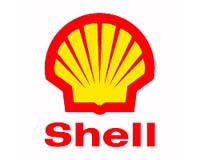
 The
development of hydrogen from its discovery as a chemical element to taking
up a position as the most important source of energy of the future is a
journey through the past and the future. A journey with ups and downs,
with both loyal and lapsed fellow travellers, and in constantly changing
circumstances.
The
development of hydrogen from its discovery as a chemical element to taking
up a position as the most important source of energy of the future is a
journey through the past and the future. A journey with ups and downs,
with both loyal and lapsed fellow travellers, and in constantly changing
circumstances.
